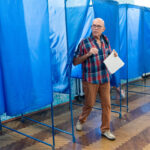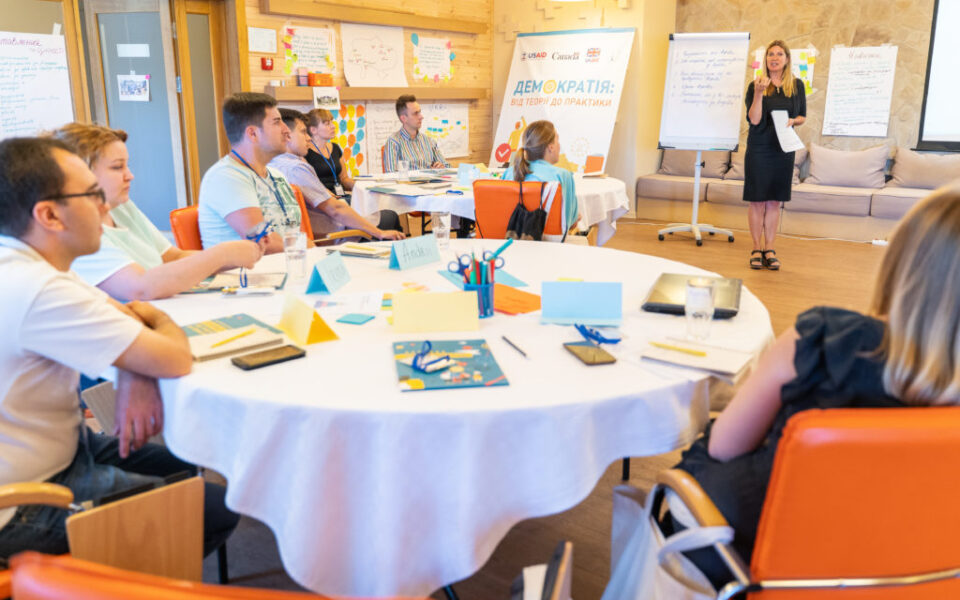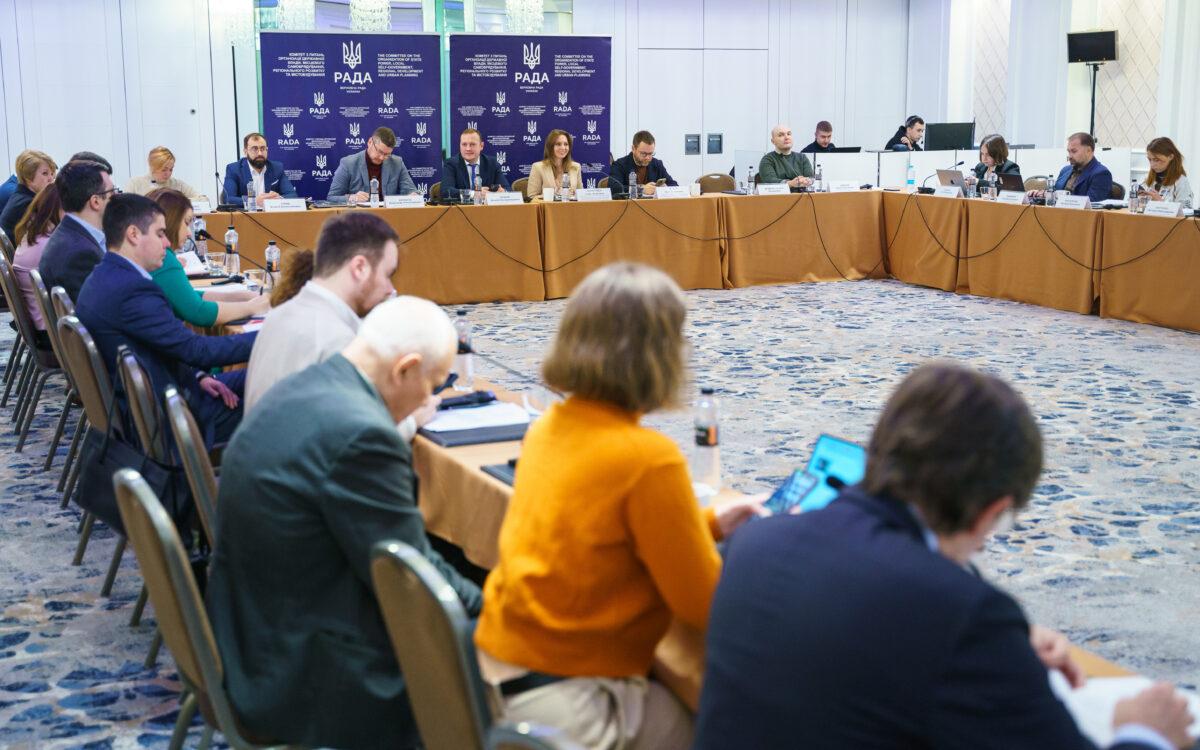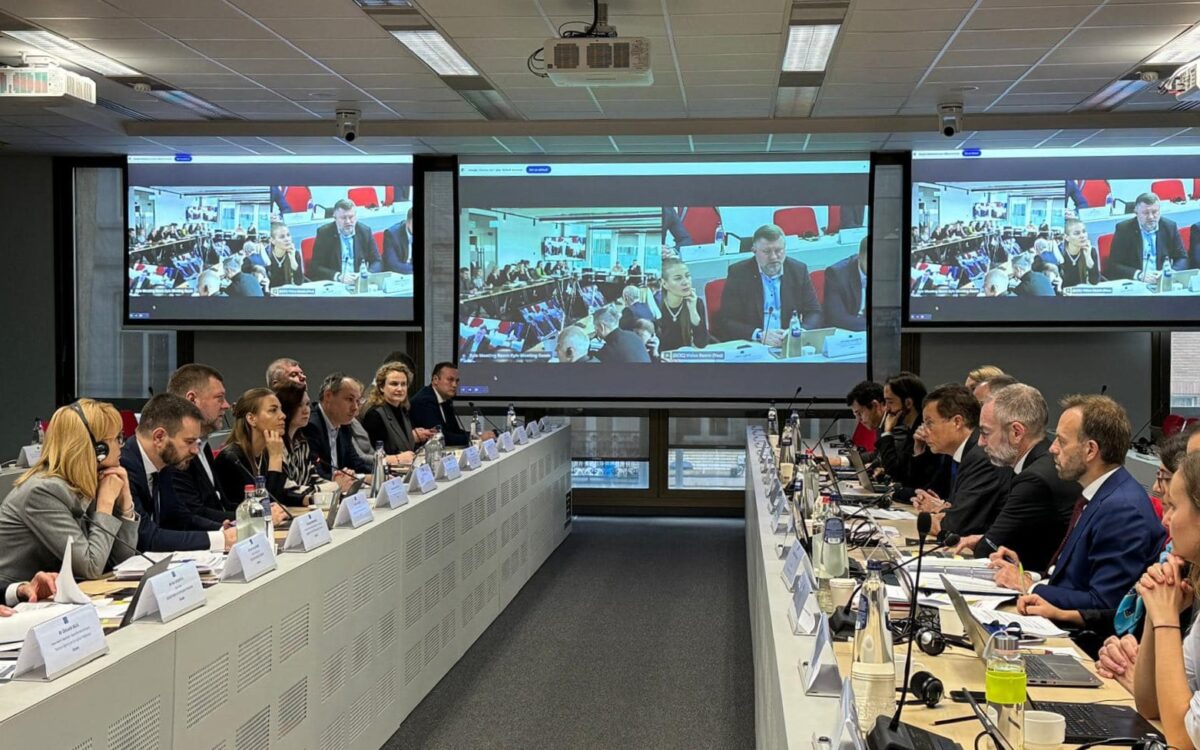
Election Bulletin #103 (February 8-21, 2020)
25.02.2020
IFES Ukraine Feasibility Study on the Introduction of New Elections Technology for Ukraine. 2020
05.03.2020For over 20 years, International Foundation for Electoral Systems (IFES) Senior Civic Education Expert Dr. Greer Burroughs has contributed to the growth of democratic civic education around the world.
In 2018, IFES unveiled an innovative, semester-long civic education course, Democracy: From Theory to Practice. Today, the course is offered at over 20 universities across Ukraine. The course was tailored for the Ukrainian context and is based on IFES’ global university-level civic education methodology, Strengthening Engagement Through Education for Democracy (SEED). Through SEED, IFES introduced an innovative, university-level civic education course in Georgia in 2011 that is currently offered at the majority of the country’s accredited universities.
IFES’ SEED methodology integrates democracy and gender equality into all areas of civic and political participation, minority rights and other key aspects of democratic citizenship. The SEED methodology is designed to foster students’ democratic values and attitudes while equipping them with the knowledge and skills essential to being mindful and effective citizens in a democratic, digital society. This is done through hands-on, student-centered active learning experiences, an interactive teaching methodology and student-led civic action projects that address problems, such as gender-based inequalities, in students’ communities and beyond.
In this Q&A, Dr. Burroughs reflects on the global expansion of SEED, the role of civic education in the digital age, and her professional journey.
When did you first encounter the topic of civic education and why did it interest you?

I have always been interested in motivations for people’s behavior. I studied sociology for my bachelor’s degree as I was interested in group behaviors, group dynamics, the development of social norms and customs. Later I studied political science and history. I began a career as a social studies teacher, which enabled me to combine these interests in working with young people.
I taught history and social movements through the lens of why people are doing what they do and most of the time it was either because they have or want power or they want to see a change in society.
I vividly remember one of the first workshops I attended at the beginning of my career about civic education. It completely changed my life. The methods I learned there transformed my teaching approach and the information that I received there was the last piece I needed to understand in which direction I should develop my career path.
How would you define the main impact of civic education on society?
Civic education terminology is an interesting idea because it doesn’t always mean the same thing to everyone. In the U.S., traditionally in the 1950s, we had civic classes where we learned about the structure of government. The kind of civic education I do is very specific towards preparing people to be active, engaged and informed members of the democratic society and this can prepare individuals to make a difference in their society.
Today we have two systems of civic education. One is a passive system, where students are just given information and are told to memorize it, study it and take a test. Some of it they remember, some of it they don’t; but, either way, students are passive in their role and as a result, we have a passive society over which leaders can have lots of control. People in passive societies are often not skilled or confident enough to take action or hold the government accountable. And when they do act, it’s not always from an educated, informed perspective.
Another system of education, which is how I teach civic education, is designed to help young people develop skills, confidence and commitment to the ideals of democracy. Not only are students given information, but they are also asked to think about it critically and use it in meaningful ways. In the process, they are learning how to think about all the information they receive, internalize it, make sense of it, use it in practical ways and apply it to real life. It’s that real-life piece that hopefully gives them confidence to be active citizens.
All in all, I think, civic education has the power to transform people in a society where one feels a sense of responsibility and commitment and also holds the government accountable to democratic ideals. In other words, a society where people are willing to stand up, take action and speak out when they see government officials engaging in behaviors that are contrary to democratic principles.
You used to work and are currently involved in civic education projects in various countries. How is work in Ukraine different from other countries you worked in?
Previously I worked on the project in Georgia. And when I came to Ukraine, I thought there should be similarities due to the common Soviet past between these countries. Whereas the Soviet Union had a strong influence on both Georgia and Ukraine, both countries are unique in their own way. What I came to realize in my work is that it’s essential to learn from the local people about things they care and worry about.
I did my first work in Ukraine in 2008 and 2009. Since that time Ukraine’s role has changed in this region and geopolitically. Therefore, it’s critical for anybody doing this kind of work to really try to understand the country they are working with and even the larger global context.
Are there different approaches to teaching civic education in a country?

It’s not that there are different approaches; but, you need to adjust the content so that it is relevant to the most important issues in that country.
How would you describe the aim of the “Democracy: From Theory to Practice” course?
The aim of this course is to give students a foundational knowledge about different components of democracy – what makes a democracy function. It’s not a course that is deeply theoretical. It’s a course that provides knowledge that every citizen needs to know: What is the structure of government, what are the features of democracy, what role does civil society play in a democracy, what are individuals’ human rights and how do you protect them? And, then what actions can each citizen take?
The next thing is to help students develop skills so that they can act, think critically, access information, collaborate effectively with others, make rational decisions and advocate for a position.
The last piece is to develop attitudes where they come to see that democracy is worth it.
Democracy is hard. Often people, especially in a transitional democracy, hope that everything will change quickly, but change takes time. People have to be ready for a commitment to democracy, to show improvements over time. These are some of the attitudes that we want to develop in young people.
What do you like the most about your work?
I am one of the luckiest people in the world because I have a job that I love. The fact that every day I go to a job that has the potential to do good in the world – what more can I ask for? We all have certain talents and skills in life and I am grateful that I have an opportunity to use mine in a way that is positive.
Read Q&A with IFES Deputy Country Director for Ukraine George (Gio) Kobakhidze to learn more about IFES’ SEED methodology and civic education in Ukraine.
IFES’ activities in Ukraine are made possible with support from the United States Agency for International Development through the Consortium for Elections and Political Process Strengthening (CEPPS), Global Affairs Canada and UK aid. Established in 1995, CEPPS pools the expertise of three premier international organizations dedicated to democratic development: IFES, the International Republican Institute and the National Democratic Institute. CEPPS has a 20-year track record of collaboration and leadership in democracy, human rights and governance support, learning from experience, and adopting new approaches and tools based on the ever-evolving technological landscape.
Since 1994, IFES has played a key role in the emergence of democratic electoral processes and institutions in Ukraine. Through this period, IFES has developed a reputation as a reliable source for impartial analysis and high-quality technical assistance in the fields of electoral and political finance law reform, election administration, civil society capacity building, civic education and public opinion research.






